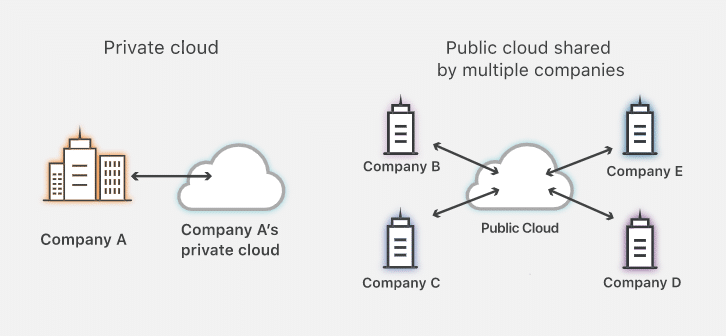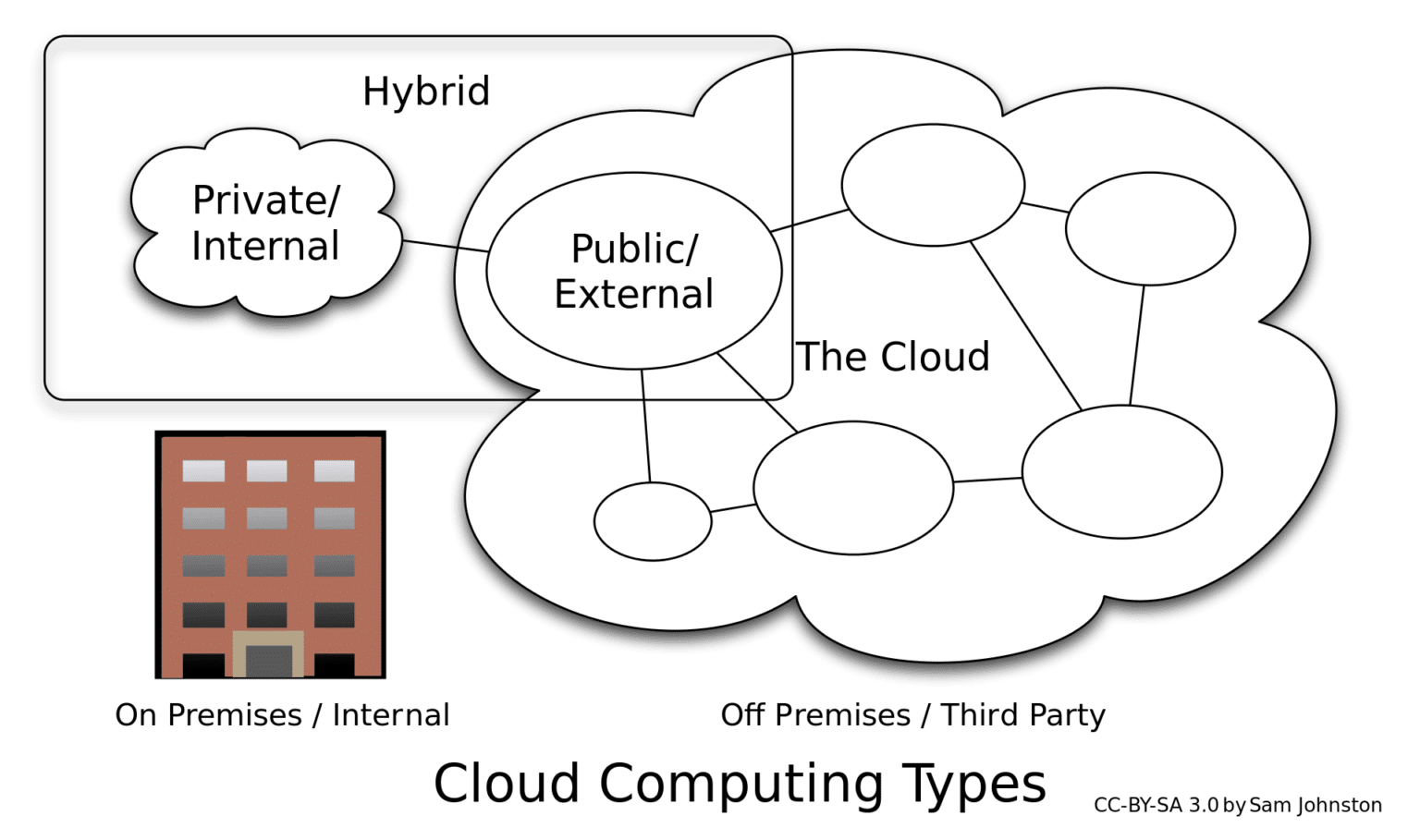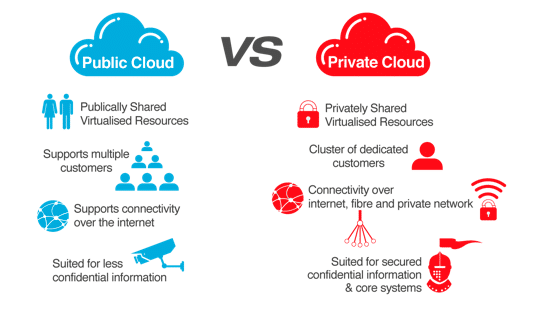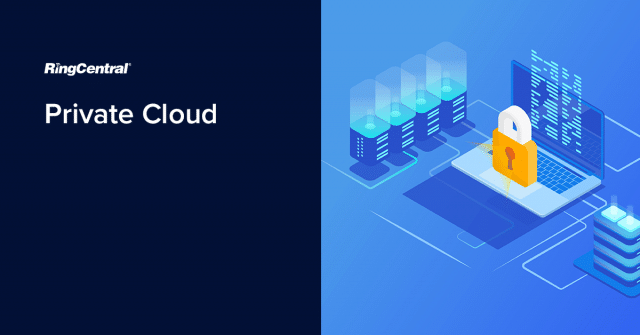Cloud computing is now big business, as more and more companies are switching to the cloud. But some businesses and organizations might be concerned about the privacy and security of their data. Especially when mobilizing sensitive data from the Internet of Things (IoT). Private cloud solutions offer cloud computing flexibility with added personalization and data security.
So, what exactly is the private cloud and why is it so great?
What is a Private Cloud?
A private cloud, sometimes termed a corporate cloud, is a cloud computing service deployed over the internet or via a private internal network. It differs from a public cloud in so far as it is available only to selected users.
This gives businesses the benefits of public cloud features, including scalability, pay-as-you-go style services, but with the added benefit of customizability, increased control, and storage.
Internal hosting is more labour-intensive but brings increased security. Sensitive data does not have to be shared with a third-party provider (as is often the case with public cloud services). Most private cloud services combine automation, AI operations, and cloud-stack compliance to streamline operations and reduce IT infrastructure costs.
How does Private Cloud Work?
There are different models for private cloud deployment. IaaS, or infrastructure as a service, mobilizes infrastructure resources. SaaS mobilizes systems as a service, and PaaS, or platform as a service, facilitates scalable cloud-based applications.
It is also possible to combine public clouds with private clouds. These operating systems are known as hybrid cloud systems and allow businesses to monopolize on cloud bursting. This frees up space by using public cloud services at times of increased computing demand.
Private clouds work via virtualization. Virtualization technologies combine resources from physical hardware so the cloud doesn’t have to virtualize resources one by one. Management software is incorporated for ease of use and automation facilitates self-service functionality.

What are the differences between private cloud, public cloud, and hybrid cloud?
Private, public, and hybrid clouds differ in the way that they deploy infrastructure and applications. All three systems mobilize cloud computing for affordability, scalability, and high-performance computing. But each cloud type offers different features. Some companies today choose to deploy private, public, and hybrid cloud systems in combination.
So, what is the difference between a private, public, and hybrid cloud?
-
Public cloud
A public cloud is a virtual online environment with open access to public cloud resources. This is the most common type of cloud computing. A third-party cloud provider operates virtual servers and cloud storage over the internet and manages all of the supporting infrastructures.
All users (sometimes called cloud tenants) share the same cloud architecture and services, which they access via their web browsers. Public clouds are popular as a result of their low costs, reliability, and scalability.
-
Private cloud
A private cloud is a closed, organization-specific, internal cloud infrastructure. Private cloud computing resources are used by one organization only and can be located either on-site or hosted by a third-party service provider.
The main difference is that private cloud infrastructure is always maintained on a private network with all infrastructure used solely by one organization. The benefits include custom IT resources, increased confidentiality, and control.
-
Hybrid cloud
A hybrid cloud combines public and private cloud functions in a multi-cloud infrastructure. This option gives organizations the opportunity for increased, flexible, and secure deployment options.
Hybrid options are great for dealing with demand fluctuation. Businesses can scale up their on-premises infrastructure to the public cloud when demands spike but can retain private control of any sensitive data.
Instead of committing to large capital expenditures at times of increased demand, companies can instead scale their IT resources as and when needed. Hybrid cloud computing allows businesses to pay only for the cloud applications they need when they need them, making it a flexible and cost-effective option.

What are the types of Private Cloud?
Not only are the different types of cloud to choose from, but there are different types of private cloud options out there too. Let’s take a look at three private cloud options on the market today.
1. Virtual private cloud
Otherwise known as a VPC, the virtual private cloud is a secure private cloud that is hosted remotely by a public cloud provider. They combine public cloud scalability with security.
2. Hosted private cloud
This is an off-site private cloud service. Hosted servers are not located on-premises. Instead, an organization outsources its cloud computing to a third-party provider who manages and hosts the cloud infrastructure remotely.
3. Managed private cloud
A managed private cloud combines features from public cloud systems but with the added security of a private, single-tenant environment.
Top Providers
Let’s take a look at some of the top private cloud providers on the market today.
- BMC Software: an agile, full-stack service across traditional and cloud platforms.
- Google VPC: a virtual, private cloud offering flexibility and rapid scalability.
- VMware: The original private cloud company. VMWare offers a complete and heterogeneous, hybrid cloud solution. Acts as the bridge between private and public cloud words offering the vRealize Suite Cloud Management Platform for managing both.
- Microsoft Cloud: The private cloud leader. Microsoft mixes on-premise control with cloud resource scalability. Many private clouds run on a Microsoft Windows Server integrated with Microsoft Hyper-V virtualization technology.
- SAP HANA Cloud Platform: for unique in-memory database and application services.
- Dell Cloud: An established vendor. Dell offers customization, and end-to-end portfolios that slash operating times/ costs under a turnkey developer platform and a large array of tools.
- Oracle: An up and coming big player with plans to challenge Amazon Web Services. Private Cloud Appliances use hardware-supported approaches to analyse data and workloads in a mixed, multi-cloud environment. Private Cloud options include applications, infrastructure, and lifestyle management tools.
- IBM/ Red Hat: IBM purchased Red Hat Cloud services in 2019. This included the Red Hat management and development suite, infrastructure software, management software, virtualization and storage. Red Hat OpenShift enables cloud diverse cloud deployments and hybrid cloud options. IBM Private cloud solutions now include hardware systems, storage, and managed services with Cloud Manager and Cloud Orchestrator.
- NetApp: Scalable deployments for the private cloud. NetApp provides solutions to help organizations scale up efficiently and simply. Private cloud storage options include NetApp Private Storage (NPS), AltaVault Cloud Integrated Storage, and StorageGRID.
- Cisco Systems: A networking giant. Cisco connects to a large ecosystem of cloud providers for hybrid deployment and boasts an extensive array of tools for cloud and data-centre applications.
- Amazon web services (AWS): The market leader in public cloud computing. Amazon Web Services offers a Virtual Private Cloud (VPC) service that runs on Amazon public cloud infrastructure. VPC gives administrators control over the cloud environment and connects to enterprise data centres.
- Hewlett Packard Enterprise (HPE): A key leader in the cloud market. HPE offers bespoke private cloud solutions across hardware, software and services, by using a combination of cloud applications and infrastructure tools. A great option for companies looking towards hybridized cloud solutions.

What are the Advantages of a Private Cloud?
A private cloud solution offers businesses and organizations numerous advantages.
More Flexibility
A private cloud will offer flexibility in the face of changing business needs and demands. A private cloud is private and can therefore be tailored to respond to your business’s technology, and market trends as they evolve.
Tighter Controls
A private cloud can be customized to meet your businesses’ specific standards. That means it can also be altered in accordance with any privacy regulations, offering organizations control over their sensitive or confidential data.
Increased Scalability
Private clouds can be scaled up or down according to demand. This saves money previously spent provisioning permanent, in-house, resources that remain unused a lot of the time.
Secure Data Center
A private cloud environment is dedicated solely to one organization. This is the most secure cloud computing option as it offers greater access control and protects against unauthorized data access. At the same time, data is backed up on the cloud prevents data loss and facilitates disaster recovery.

Private Cloud is here to stay
Boasting so many advantages, the private cloud is definitely here to stay. Private cloud services offer the best of both worlds. Cloud scalability and flexibility are enhanced with increased security, privacy, and room for personalization.
Learn the RingCentral Business Cloud Solutions
RingCentral offers several business cloud solutions to meet different organizational needs. These cloud solutions are easy to manage, reliable, and available from anywhere on any device. So, let’s dig into some of these business cloud solutions in more detail.
- For small businesses: RingCentral offers simple but powerful cloud-based phone systems for streamlining small business operations and boosting connectivity.
- For enterprise: RingCentral scales cloud communications for large teams and large volumes of customers.
- For service providers: RingCentral provides customized and integrated services for mobile operators and managed service providers.
- For developers: RingCentral helps developers build their own integrations.
Originally published Dec 30, 2020, updated May 15, 2021


